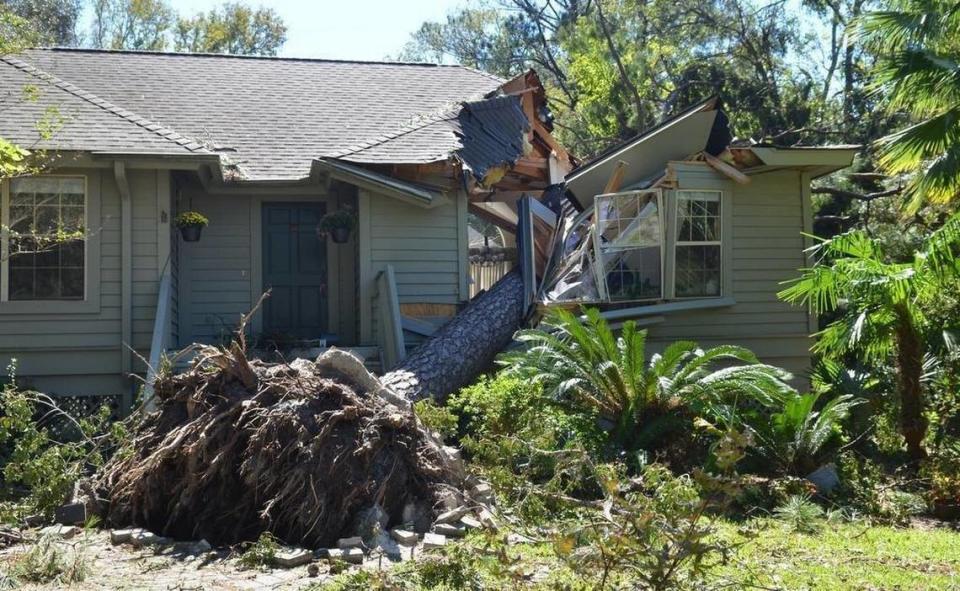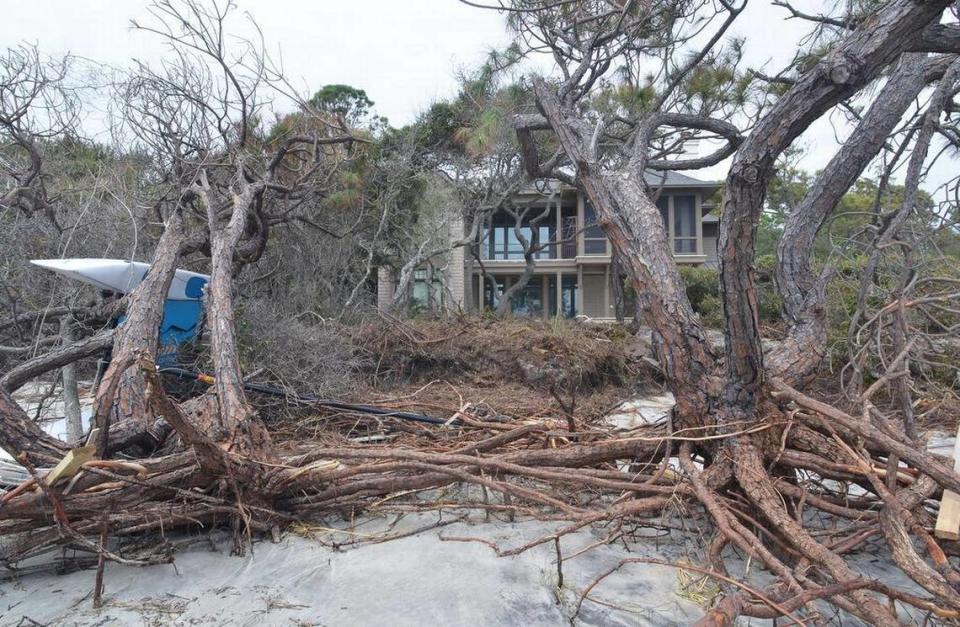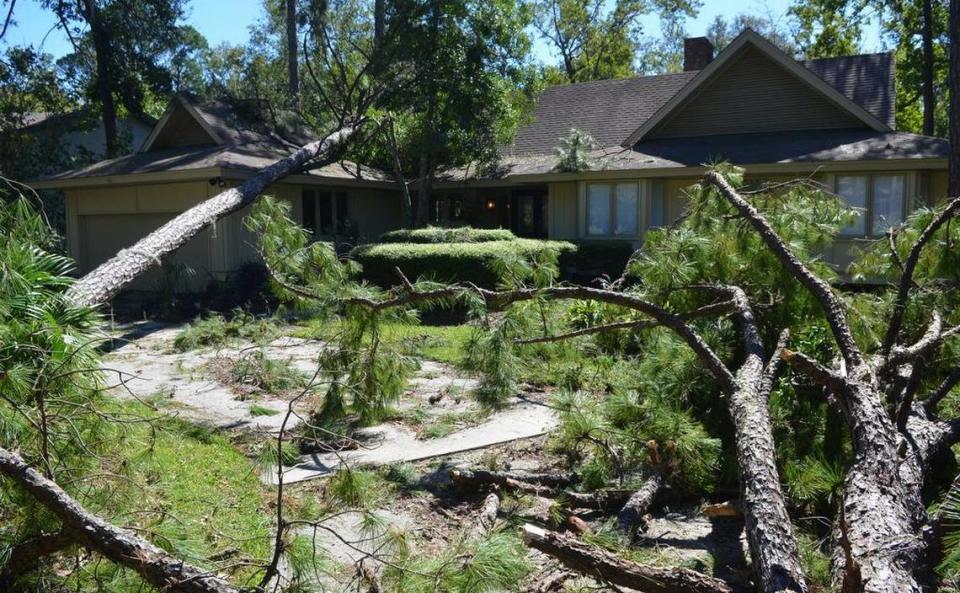Coastal South Carolina home ownership 101: Things to know about buying property insurance
Your new home passed the inspection, and the valuables are ready to be boxed up. But, before closing, lenders require a form of protection more complicated than bubble wrap and packing paper: a home insurance policy.
A home in the Hilton Head area is an investment — one that cost $692,549 on average last year, according to the Hilton Head Area Association of Realtors — which is one of the reasons it’s vital to choose the right home insurance to protect it. Not to mention oceanside views and easy beach access mean higher risk from damaging storms.
“It’s not one size fits all,” Insurance Information Institute Director of Communications Mark Friedlander said. The institute is a U.S. industry association that has worked improve public understanding of insurance since 1959.
“Each home buyer needs to make their own decision on what works best,” he said.
Here is what new homeowners or current homeowners renewing their insurance policies should know.
What does property insurance cover?
For disasters like storms, fires, theft and accidents, most standard policies include four types of protection: coverage for the structure of the home; coverage for personal belongings; liability protection; and coverage for additional living expenses.
A standard policy doesn’t cover flood damage, so homeowners must purchase it separately.
“We consider, especially coastal in the Southeast, [flood insurance] essential coverage,” Friedlander said. “In [the Hilton Head area] coastal flooding is almost guaranteed at some point.”

Coverage for the structure of the home is called dwelling coverage. It reflects how much it would cost to rebuild a home, which isn’t the same as the market value of a home.
This part of property insurance is heavily impacted by supply chain disruption and higher material and labor costs, according to Friedlander.
“If you have a home insurance policy, maybe you bought several years ago, if you have not updated your dwelling replacement cost coverage, most likely you have a significant insurance gap,” Friedlander said. “Meaning in the future if you suffer a major loss, you wouldn’t have enough money in your policy [to rebuild your home].”
Coverage for personal belongings includes islanders’ golf clubs. It also includes furniture, clothing, electronics and jewelry, among other items.
There are two levels, according to Friedlander. An actual cash value policy factors in depreciation versus a replacement cost policy that pays the amount it costs to replace personal belongings without any deduction for depreciation.
For very expensive items, Friedlander recommends homeowners have a personal property endorsement.
Liability protection covers lawsuits for bodily injury or property damage that policyholders or family members cause other people. It covers damage caused by a pet, but only to other’s homes not the policyholder’s.
Additional living expenses coverage includes the cost of living away from home if a home becomes uninhabitable due to damage from an insured disaster.
“That’s really important living in coastal Carolina,” Friedlander said. “It typically covers hotel bills, restaurant meals, and other living expenses occurred when the home is being rebuilt.”

How can you get the best price?
To get the best price and the right policy for each individual homeowner, Friedlander recommends homeowners work with an insurance agent and get multiple quotes.
“You always say a minimum of three quotes, so you can compare and compare the cost and the coverage,” he said.
There are three methods to purchase insurance. Homeowners can buy from a captive insurance agent, who sells insurance for only one insurance company. They will work with a homeowner to determine which plan works best for them within their company.
Homeowners can also use a independent agent or broker, who will provide quotes from a variety of national and regional insurers. For example, they’ll compare Auto-Owners, Liberty Mutual and Nationwide not just give quotes from one company.
Lastly, agencies provide homeowners with a direct quote and ability to purchase online.
“The only downside to that is you have no guidance at all,” he said. “You’re not working with agents, and especially (for) somebody who’s new to home purchasing, we really very much recommend working with an agent.”

Weighing options
When purchasing homeowners insurance, it’s important to weigh your coverage versus the cost.
“A lot of people choose to select higher deductibles to save on the premium, but of course the downside is you’ve got to pay more out of pocket,” Friedlander said. “You suffer losses.”
A homeowners insurance deductible is the amount of a claim a homeowner is responsible for in an insured disaster. If you have a $1,000 deductible and a storm does $5,000 worth of damage to your home, the insurance company will pay $4,000.
The higher the deductible, the the lower the amount a homeowner pays each month, or the premium, is likely to be.
Many Coastal Carolina homeowners’ insurance policies include different deductibles for damage caused by hurricanes. Homeowners should consider that hurricane, or named storm, deductibles are higher than noncatastrophic deductibles.

